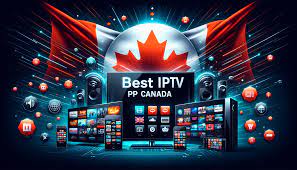In recent years, the way we consume media has drastically evolved, thanks largely to technological advancements and the rise of the internet. One of the most significant developments in this transformation is Internet Protocol Television, commonly known as iptv nederland. This innovative technology has revolutionized how we access and enjoy our favorite television programs, movies, and live events.
What is IPTV?
IPTV is a digital broadcasting protocol that uses the internet to deliver television programming. Unlike traditional cable or satellite services, which transmit signals through radio waves or coaxial cables, IPTV delivers content through internet protocol networks. This means that users can access a wide variety of content on-demand, live, or through time-shifting features, allowing them to watch their favorite shows whenever they want.
How Does IPTV Work?
IPTV works by streaming video content over a broadband internet connection. Here’s a simplified breakdown of how it operates:
- Content Acquisition: IPTV providers acquire content from various sources, including television networks, production studios, and streaming services.
- Encoding: The acquired content is then encoded into a digital format suitable for streaming. This process compresses the data, allowing for faster transmission over the internet.
- Transmission: The encoded content is delivered to users via a broadband internet connection. Unlike traditional broadcast methods, IPTV uses a dedicated connection that allows for more reliable and high-quality streaming.
- Decoding: Finally, users’ devices (such as smart TVs, computers, or set-top boxes) decode the streamed data, allowing viewers to enjoy the content on their screens.
Types of IPTV Services
There are three primary types of IPTV services:
- Live Television: This service allows viewers to watch live broadcasts of television programs, including news, sports, and entertainment shows, just as they would with traditional cable.
- Video on Demand (VOD): VOD services let users select and watch movies, TV shows, and other content at their convenience. This is similar to popular streaming platforms like Netflix and Hulu, offering a vast library of content to choose from.
- Time-Shifted TV: This feature enables users to watch previously aired programs at a later time. It is particularly useful for those who miss live broadcasts and want to catch up on their favorite shows.
Advantages of IPTV
IPTV offers several advantages over traditional television broadcasting:
- Flexibility: Users can choose from a wide range of content and watch it on their schedule, rather than adhering to a set broadcast schedule.
- Quality: IPTV can deliver high-definition (HD) and even 4K content, depending on the user’s internet speed and service provider.
- Interactivity: Many IPTV services offer interactive features, such as the ability to pause, rewind, or record live broadcasts, enhancing the overall viewing experience.
- Diverse Content: IPTV provides access to a vast array of channels, including international content, niche programming, and user-generated content, catering to various tastes and preferences.
Challenges and Considerations
Despite its many benefits, IPTV also faces challenges:
- Internet Dependency: Since IPTV relies on a stable internet connection, users with slow or unreliable internet may experience buffering and interruptions during streaming.
- Legality and Content Licensing: Some IPTV providers may not have the necessary licenses for the content they offer, leading to potential legal issues for users. It’s essential to choose reputable providers to ensure compliance with copyright laws.
- Technical Issues: Users may encounter technical difficulties, such as compatibility issues with devices or software, which can hinder their viewing experience.
The Future of IPTV
As technology continues to advance and internet speeds increase, the future of IPTV looks promising. With the growing popularity of streaming services and changing consumer preferences, IPTV is likely to become an increasingly dominant force in the television landscape.
Emerging technologies, such as 5G networks and improved compression algorithms, will enhance IPTV’s capabilities, making it even more accessible and user-friendly. Furthermore, the integration of artificial intelligence and machine learning can personalize content recommendations, creating a tailored viewing experience for each user.
Conclusion
IPTV represents a significant shift in how we consume television and video content. With its flexibility, diverse offerings, and interactive features, it caters to the evolving demands of modern viewers. As the technology continues to develop, IPTV is set to become a staple in households around the globe, paving the way for a new era of television entertainment. Whether you’re a sports fan, movie buff, or avid TV watcher, IPTV has something to offer everyone in this digital age.

